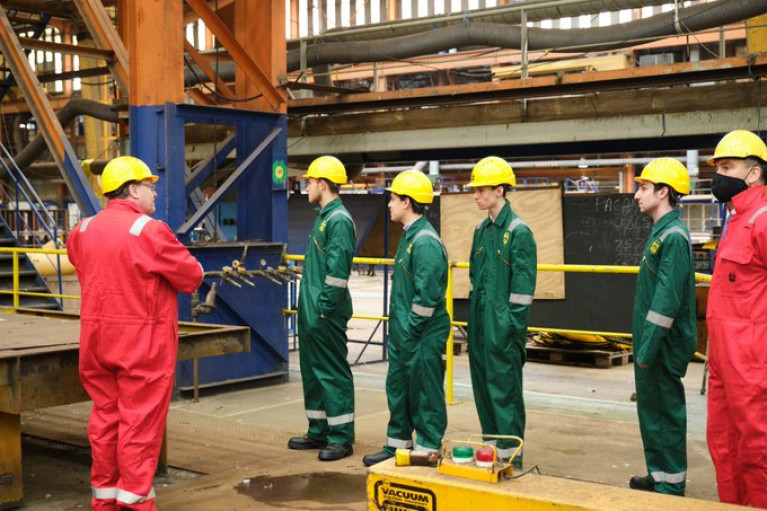Shipyard Harland & Wolff has launched an apprenticeship scheme that is available across all of their four sites either side of the North Channel and the Irish Sea.
The scheme is applicable to H&W Appledore, Arnish, Belfast and Methil, with the first intake of apprentices arriving on site in September 2021.
Applications will close at 5pm 21 May 2021.
To apply, prospective employees must complete the application form which can be found under the Apprentices page on the Harland & Wolff website. At this time, CVs will not be considered.
For successful candidates, the next stage will include an online assessment followed by an assessment day and interview on site.
We will be looking for team players who are motivated with good communication and practical skills. Prospective apprentices must also have five GCSEs/Standard Grades/Nationals or equivalent including Maths, English, Technical, Craft.
Kelly O’Rourke, Group Director of Human Resources commented: “I am very excited to be launching our first Harland & Wolff multi-site apprenticeship scheme which will be a key aspect of our development into the future.
This scheme uniquely offers apprenticeships across all four Harland & Wolff sites and the opportunity to build a career in a number of industry areas. Our apprentices will work alongside our highly experienced workforce, transferring valuable skills to the next generation.
We are aiming to recruit from local communities, as well as those from a wide range of backgrounds and talents as we seek to develop a diverse workforce.”



























































